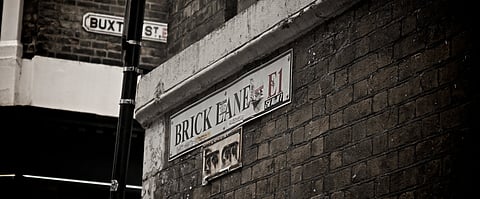Britain’s Banglatown
The London Borough of Tower Hamlets has featured quite heavily in the British press of late. Particular attention has been focused on the borough's colourful and eccentric mayor, Lutfur Rahman. Rahman, a solicitor of Bangladeshi heritage, has been at the centre of a media storm following the conclusions of an independent report commissioned by the Secretary of State for Communities and Local Government, after a BBC investigation on the alleged misappropriation of council funds to Bangladeshi and Somali organisations in the borough. Rahman has been accused of favouring ethnic and political allies in the distribution of grants, which he categorically denies. This episode is the latest in a series of controversies surrounding the independent mayor. Past controversies include association with Islamic 'extremist' organisations in the borough, courting criminal benefactors, public-funded luxury limos, weekly propaganda newspapers, voting fraud, polling station intimidation and refusing to answer questions from members of the public in council meetings on the grounds that it would be a violation of the mayor's 'human rights'.
Despite this, Rahman has won two successive elections by significant majorities and remains hugely popular in the borough, as he is known for delivering on his promises, particularly among the Bangladeshi community. He became Britain's first executive mayor (and the first Muslim) from a Black Minority Ethnic (BME) background when he was elected for his first term in 2010. Ironically, after having spent a lifetime working in the community in various capacities, this victory came only after a bitter fallout with the local Labour Party in the run-up to the 2010 council elections. At the heart of this remarkable outcome, which saw the gradual weakening of Labour in one of its traditional heartlands, was the borough's substantial Bangladeshi community and their three decades of struggle.

